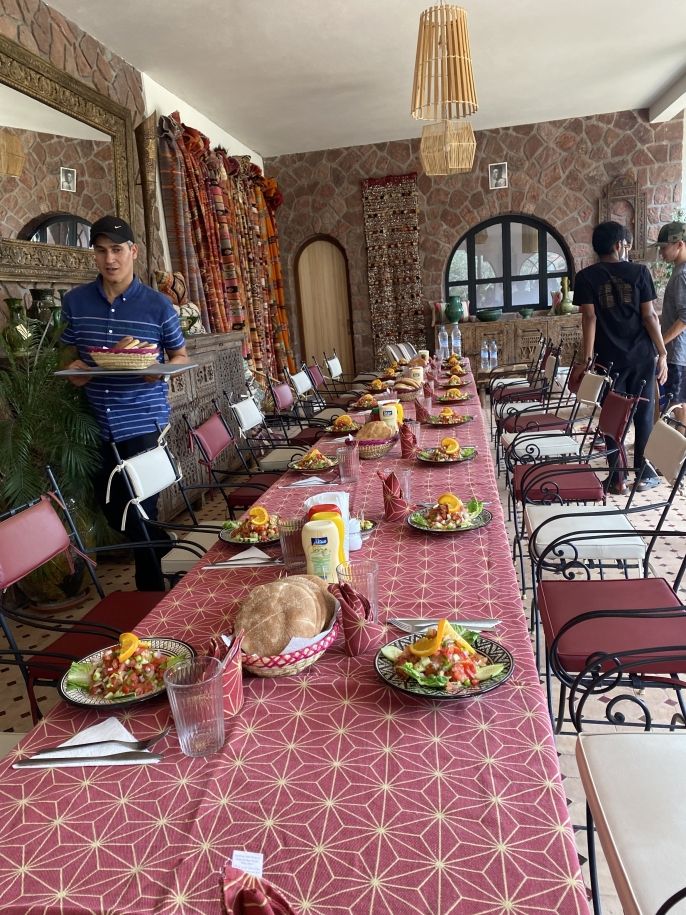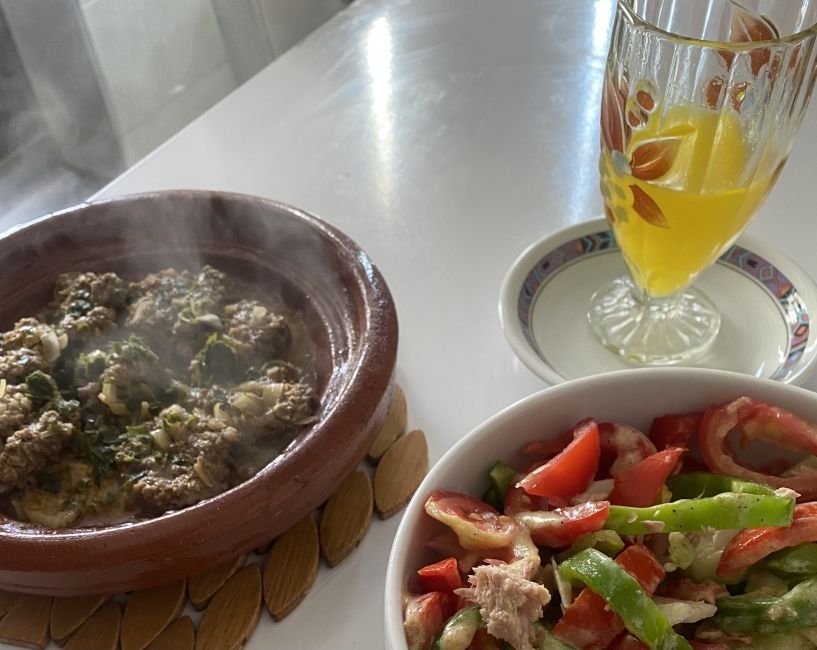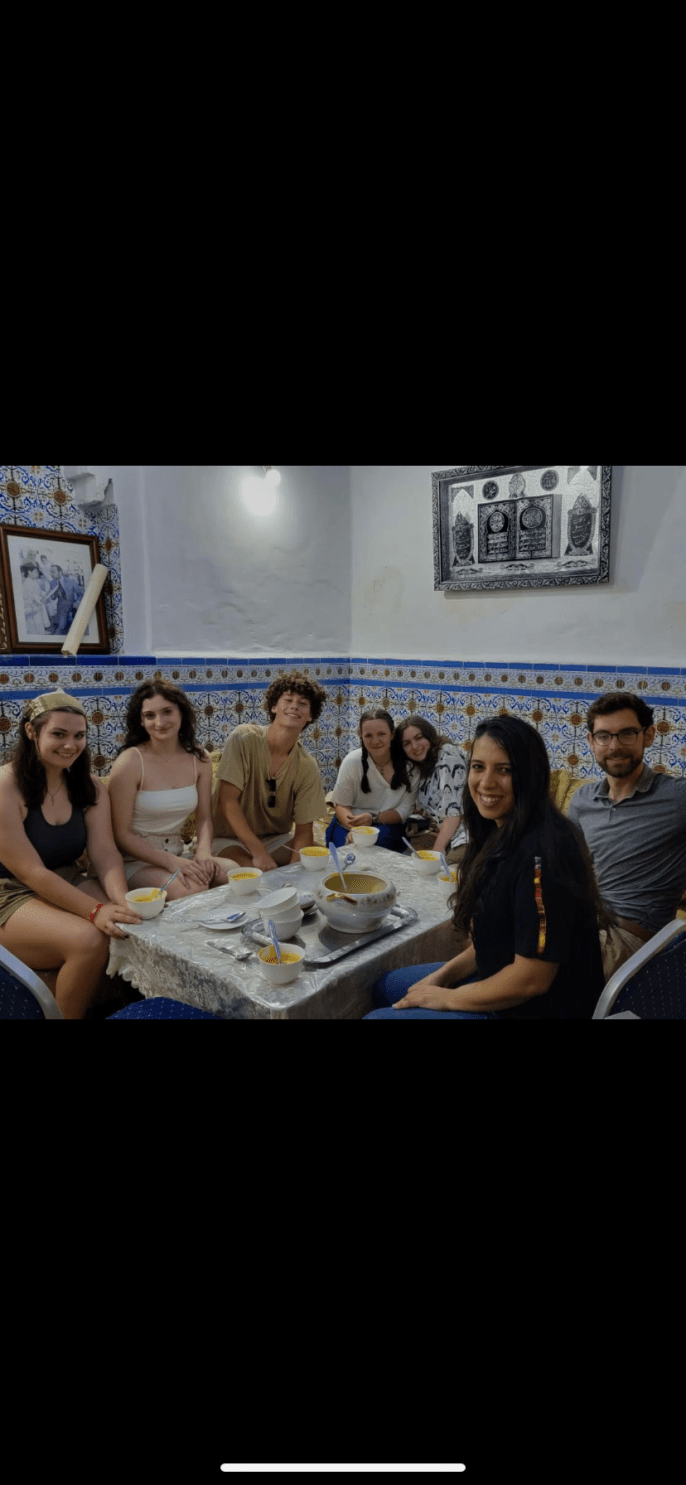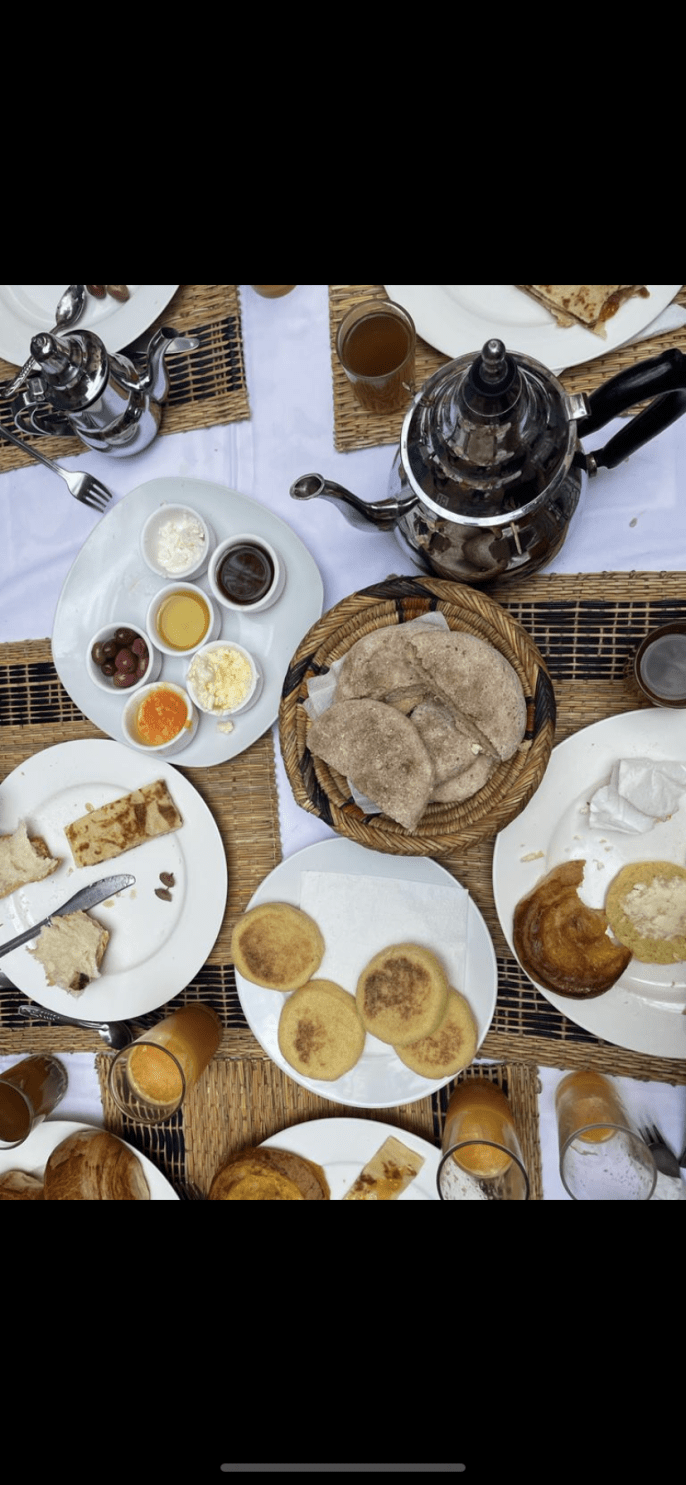Student Spotlight: Esmee Newton; “What’s in a meal?”
My name is Esmee, and I am a participant in the CIEE Leadership Through Outdoor Education program based in Rabat, Morocco. As my program comes to a close, I want to share an important part of the culture that has stood out to me. The presence of collectivism in Moroccan culture is shown in an abundance of ways, especially in the relationship between communities and meals.
Typically, especially in the United States, the word meal brings only food to mind. I would argue that in Morocco, this word instead means family. In Morocco, mealtimes are often spent in conversation with friends and family. Everyone from a community in Morocco seems to have a role in the creation of a meal. People either help to supply the food, cook, clean up, or deliver the food to a dining area. This role of community shows the importance of trust. Buyers want to know who they are getting their produce and food from because the only person who can truly vouch for the quality, is the seller. In Morocco, meals are the result of an entire communities’ contributions.
My CIEE session group arrived in Morocco on Eid al-Adha - an annual celebration sacrificing a sheep in honor of the sacrifice that Abraham was willing to make. A tradition of the Eid is to cook a third of the sheep for your family, give a third of the sheep to friends or neighbors, and to give a third to the poor or less fortunate. The role of community is demonstrated during meal times as family and friends sit around a circular table for meals.
The Eid affected the events of the day we arrived at our homestays. When I was taken to my homestay, my host family whisked me to the roof, where they were cooking part of the sheep for lunch. Then, I was rushed downstairs to sit down, next to the rest of my host family, on a couch surrounding a circular table. The table was piled with small bowls of olives, cauliflower, crushed tomato, bowls of bread, and in the middle was a plate of the lamb that was being cooked on the roof. At the time I did not recognize that these first events would help me to become comfortable in my homestay. The events helped me to feel welcome into my family.
The day after the Leadership Through Outdoor Education group arrived in Rabat, my group was rushed off to Chefchaouen. In Chefchaouen, I enjoyed some of my first Moroccan meals. It is also where I spent my first days bonding and enjoying my free time with my peers. For every meal, we sat and enjoyed giant tajines, and loads of bread while laughing and talking. I am confident in saying that being sent to Chefchaouen the day after arriving is what made me so comfortable around my peers. Furthermore, having the time to sit down with them during meals and develop that sense of community is such an important part of the experience that I have had.
Our meals were planned by Madiha, who came with us to Chefchaouen and is the center director of CIEE Morocco. It was interesting to see how well acquainted she was with all of the restaurant owners. She knew where you could find some of the best food in Chefchaouen, despite a door having no sign or being in what seemed like a deserted alley. Whenever Madiha asked for help, she was pointed in the right direction, and furthermore, whenever she showed her own willingness to help, she was welcomed in doing so. At many of the restaurants we went to, Madiha was happy to help the restaurants and staff, especially to accommodate a larger group.
Later in the program, we participated in homestay integration activities. One of these activities was to make a tajine with our families. As soon as I said that I was ready to cook, I was pulled into the kitchen. I’m not sure how much of the cooking I did, but the process was extremely interesting to me. When I was adding the spices to the oil that would be poured on the chicken and vegetables, my only directions were shwiya and safi. Except that my shwiya was always too much or not enough. While I have seen many tajines, they are all slightly different in presentation and flavor. Not only does family play a role in enjoying a meal, it plays a significant role in the creation of a dish.
As my time in this program comes to a close, I am sad to go after how much I have learned and gained from my experiences here. When I came into Morocco, I was welcomed with open arms. I am sad to be leaving everyone that I have met and spoken with throughout my time here, but I am ecstatic that I will be able to bring everything I have learned throughout this trip to share with my friends and family back at my other home.




